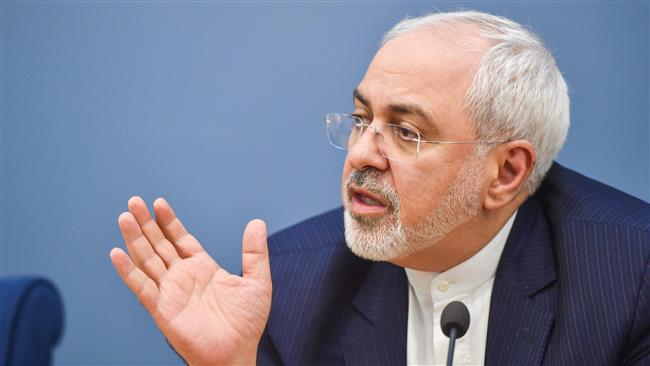
RNA - Speaking on Monday, Zarif reiterated concerns by Leader of the Islamic Revolution Ayatollah Seyyed Ali Khamenei about the US’s non-performance of the deal, which is known as the Joint Comprehensive Plan of Action (JCPOA), and said such non-commitment had been predictable for Iran.
Thus, the Iranian foreign minister said, “the two sides proceeded based on mutual mistrust and devised numerous [contingency] mechanisms.”
Iran and the P5+1 group of countries, namely the US, Russia, China, France, Britain, and Germany, reached the deal in July 2015. The agreement went into effect in January 2016, resolving a long-running dispute over the Iranian nuclear program.
Under the deal, Iran has agreed to put certain limits to its peaceful nuclear program in return for the lifting of international sanctions that had been imposed on the country over the program.
Zarif said the mechanisms worked out in the deal made it “much easier” for Iran, if necessary, to roll back the steps it had taken under the deal than for the other side to put the sanctions back on the Islamic Republic.
“If a moment comes when the Americans would not perform the JCPOA, our reversibility would be amply swift,” Zarif said, explaining that, in such a scenario, Iran would take up more nuclear activities than it had before committing to the JCPOA.
He said that Iran had “enough guarantees,” based on the mechanisms, to return to the pre-JCPOA era if the Iranian government determined one day that the American non-performance was at a level warranting that return.
Zarif said, however, that he believed such a scenario would be unlikely.
While Iran has been steadfastly carrying out its commitments under the JCPOA, the US has been less strictly abiding by it. Washington has offered only verbal assurance to international institutions that they would not face US punitive measures if they restored their trade ties with Tehran under the circumstances provided following the conclusion of the deal. The shortage of concrete guarantees has caused some European banks to balk at resuming the transactions.
In his Monday remarks, Zarif also said that executing the accord was somehow taking more effort than negotiating it did prior to 2015, stressing that all the opportunities that had emerged following the deal had to be properly taken advantage of.
847/940